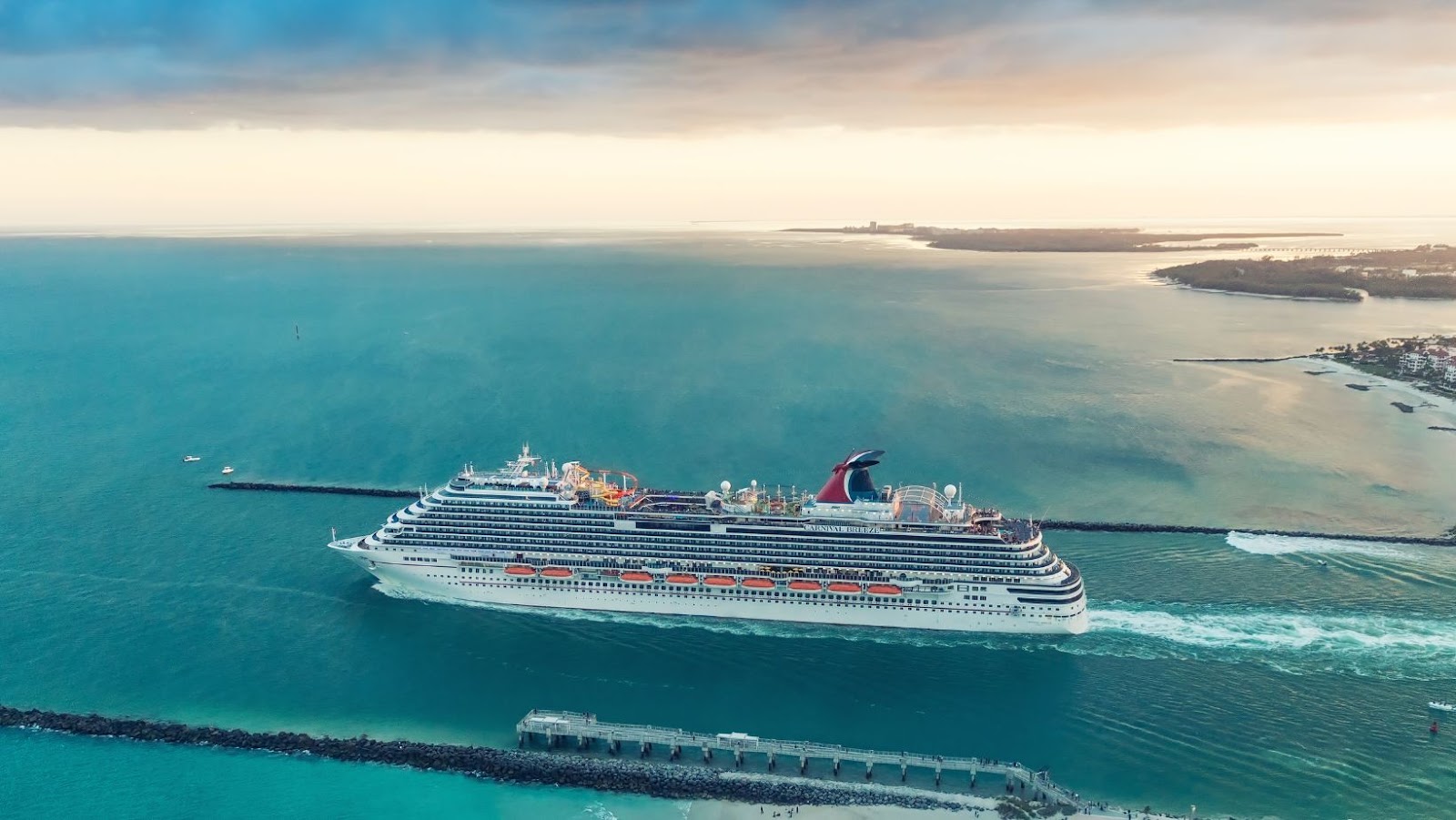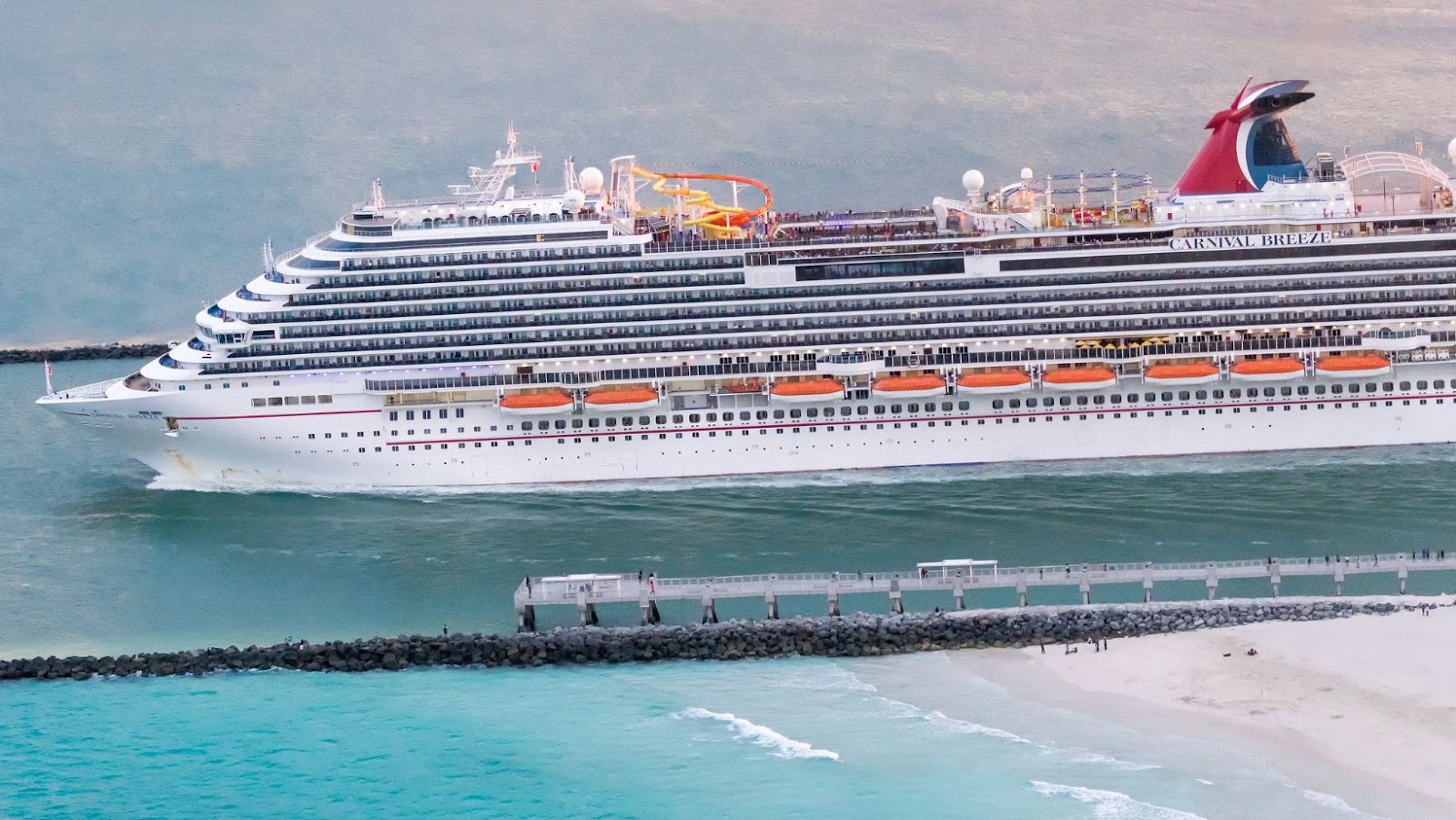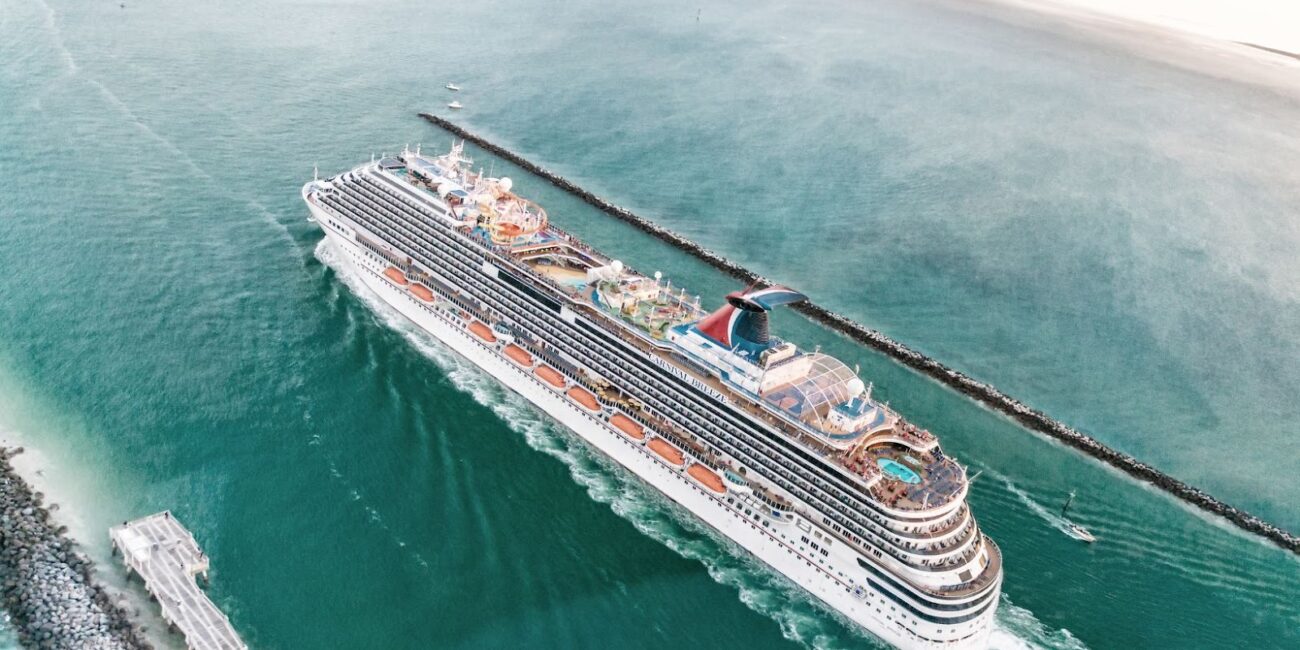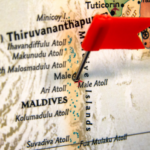To ensure a smooth and hassle-free voyage, you need to prepare the right travel documents for your cruise line. In order to fully understand the ins and outs of this process, we’ll discuss an overview of cruise line travel documents. We’ll explore the Importance of Proper Documentation and the Common Required Documents that are necessary to board a cruise ship. Additionally, we’ll take a look at Scenario-Based Needs, so you can be fully prepared for any possible situation.
What Documents do I Need to Travel to Costa Rica
Proper Cruise Line Travel Documents are essential for travellers to gain entry and exit from ports. Without valid documentation, passengers may face delays, cancellations, or even denied entry resulting in loss of money and missed experiences.
Ensuring all necessary documents are obtained and up-to-date is crucial. Passports with at least six months validity after the trip return date, visas, and vaccination certificates must be in place before embarkation. It is advisable to double-check country-specific rules to avoid any problems.
Additionally, certain countries require additional documentation such as ESTA (Electronic System for Travel Authorization) for US lawfully admitted travellers. Failure to comply may result in denied boarding.
Do not miss out on the excitement of the cruise by forgetting important travel documents. Ensure proper preparation is done beforehand and keep all original documents including photocopies for added security and have a stress-free cruise vacation.
Get ready to dig through your files, because these common required documents are like the Pirates of the Caribbean treasure hunt.
Common Required Documents
Cruise line travel necessitates the possession of appropriate documents to ensure smooth sailing. These essential documents can vary depending on your location, nationality, mode of transportation, and the destination. Here are some common required documents for cruise line travel discussed in detail:
- Passports
- Visa
- Certificates – Health and Vaccination
- Proof of Citizenship/Nationality
- Credit Card/Debit Card Information
- Travel Insurance Policy Document
Besides these, certain cruises may require additional documentation and formalities, which must be explicitly stated beforehand.
For instance, a traveler embarking on a cruise from Miami to Cuba must carry all visa requirements along with a Government-issued license authorizing their trip under one of the twelve approved categories. The license should be obtained before boarding the vessel.
Once an avid traveler I know boarded a cruise ship without proper identification proof at Key West port on her way back home from Cozumel; she was not allowed to disembark, hence had to continue sailing for another few days till she reached her next stop where she could connect with the U.S Embassy and obtain necessary documentation.
Just remember, if your cruise ship gets lost at sea, your travel documents won’t be the only thing that’s considered ‘overdue’.

Scenario-Based Needs
To address specific traveling requirements, an inspection of voyage-line travel documents is necessary. There are various scenarios that call for certain modifications to be considered when checking travel documents, such as cruises for extended periods or those that require multiple stops.
| Scenario-Based Needs | Appropriate columns |
| Extended Cruise Periods | Valid passport; Cruise visa if required; Medical records; Travel insurance |
| Multiple Stops Requirements | Valid passport; Visa if needed for each stop; Proof of inoculations and vaccinations |
It’s important to keep in mind that any unforeseen issues can arise during international travel. Prioritizing the organization and completeness of crucial documents ensures a hassle-free vacation on deck.
A current travel document advice by US Passports & International Travel states that passengers should hold visas before boarding the ship for countries like Brazil, Russia, India or China.
Researching for a cruise is like studying for a final exam, except you get to drink and lounge by the pool instead of pulling all-nighters.
Before You Cruise: Preparation and Research
To prepare for your upcoming cruise and ensure a smooth sailing experience, you need to take care of some important things beforehand. With this section on ‘Before You Cruise: Preparation and Research’ with three sub-sections of ‘Getting Organized, Accessing Cruise Line Information, and Using Government and Travel Resources’, you will be able to organize everything in advance and have all the necessary travel documents.
Getting Organized
It’s crucial to arrange and coordinate things before embarking on a journey. Proper planning saves time, resources, and energy. Let’s take a look at some tips to help us Streamline Your Cruise Preparation.
- Plan ahead of time – Allocate ample time for research, budgeting, packing, and documentation. Create a list or schedule to stay organized.
- Research – Thoroughly investigate your cruise itinerary, ship details, destinations, customs rules and regulations.
- Documentation – Check your passport and visa requirements before booking tickets. Make copies of all essential documents like tickets, passports, health insurance cards.
- Packing – Pack comfortable clothes suitable for the weather conditions in the destination. Carry all necessary items like sunscreen, toiletries, medications etc.
- Stay informed – Continuously communicate with the cruise line about any changes in plans or policy updates.
Remember that proper preparation enhances the vacation experience by eliminating stressful circumstances. Inform yourself of everything you can before setting off on this adventurous trip.
Beyond all these facts stands out an undetectable hazard – surprise illness aboard the ship. If one is not cautious enough when selecting travel insurance policies which can cater for possible health necessities whilst aboard the ship – it can result in very costly medical bills.
A friend of mine recently went on a seven-day-long transatlantic cruise – bound to Europe – with his family in April last year. With pre-existing medical conditions (his mum had hypertension), they made a decision to invest extra money towards purchasing better travel insurance coverage as they knew their concerns needed adequate attention. Upon disembarking however, it turned out his dad had fallen seriously ill while they were onboard; thankfully, he has recovered but claimed that the costs of medical attention were astonishing (happily covered by aforementioned-thoughtful choice).
Get ready to dive deep into the abyss of cruise information – it’s like researching a black hole, but with piña coladas.

Accessing Cruise Line Information
When planning a cruise, obtaining relevant information is essential. It can be done using online sources, social media platforms, or reaching out to the company directly. Cruise line websites often provide in-depth details on trips, the type of cabins available and their amenities, dining options, and onboard activities. Social media platforms showcase feedback from previous travelers and offer an insight into what to anticipate while on board. Interaction with customer care agents can also give factual information tailored to your needs.
Moreover, some travelers might find it helpful to go through surveys or reviews made by bloggers specialized in the cruising industry before making a final decision. These resources offer impartial opinions and further clarify common inquiries related to gratuities or special pricing schemes. Before settling for any form of data source mentioned above, keen attention should be given to reliable sources, expert opinions and not facts linked with just advertisements.
In the quest for extraordinary twists in voyages on board cruising ships is a frequent desire harboured by many travellers. Nevertheless one should not always rely on going outside all known cruise lines or excursion providers when doing this as it comes with risks attached such as delayed departures and unsafe practices within tourist locations. The case has been reported where a family found themselves left behind by their vacationing aircraft operator due to unexpected events that turned out not favorably later on.
Who needs a travel agent when you can navigate government websites like a pro? #DIYtravel #researchinglikeaboss
Using Government and Travel Resources
The authorities provide various resources for vacationers to make their cruise experience hassle-free.
- Check the recommendations and warnings of the government to ensure a safe voyage.
- Stay updated with any travel restrictions or requirements laid down by the government due to changing circumstances.
- Use trusted travel agents or booking websites that comply with government regulations for better security and protection of your rights.
By being vigilant, travelers can avoid unforeseen circumstances that may hamper their trip’s enjoyment. Plan ahead by using government and travel resources to make your cruise more fruitful and enjoyable!
Don’t forget your passport or you’ll be enjoying a scenic tour of the port instead of sipping Mai Tais on the deck.
Required Documents in Detail
To ensure a hassle-free cruise experience with all the necessary paperwork in order, refer to this detailed section on required documents. Key travel documents like passports, visas, photo identification, and birth certificates must be in your possession as per cruise line requirements. Read on and learn more about each sub-section.
Passports
Passport Documents are a must for traveling abroad. These documents validate the citizenship and identity of a person and allow access to different countries.
The following table provides details of the different documents required for obtaining a passport.
| Document | Description |
| Birth Certificate | Proof of Birth Date and Place |
| Valid ID | Government issued photo identification |
| Social Security Proof | An official document with SSN or ITIN |
Some unique details worth noting are that passport applications typically take 4-6 weeks to be processed. Expedited services may be available for additional fees, but it is advisable to apply as early as possible to prevent delays in travel plans.
As per the US Department of State, over 21 million new passports were issued in 2019 alone – making passport application process an essential consideration before international travels.
“Why bother getting a visa when you can just illegally immigrate and wing it?”
Visas
For the legal authorization required to enter a foreign country, an essential travel document is necessary. These documents are commonly referred to as Travel Permits.
A Travel Permit or Visa is categorized depending on its purpose, duration, and the requirements set forth by the destination country. The following table provides necessary details regarding visas:
| Type of Visa | Purpose | Duration |
| Tourist visa | Leisure and recreational purposes only | Short-term stay |
| Business visa | For a business trip or negotiations with clients or partners | Short-term stay |
| Student visa | Study at a recognized institution in the foreign country | Medium- to long-term stay |
| Work visa | Employment in a company located in another country | Medium- to long-term stay |
| Transit visa | To enter and pass through a country while en route to another destination. | Short-term stay |
Additional requirements for obtaining Visas include demonstrating financial stability, providing proof of accommodation, and submitting a clean bill of health from recognised medical institutions.
Pro Tip: It is advisable to consult with your local embassy or consulate concerning individual needs relevant and specific requirements for the visas associated with the countries you’re traveling to.
Your face may be your fortune, but your photo ID is your ticket to legally surviving adulthood.
Photo Identification
The process of establishing one’s identity through Photo Identification is important during various official or professional proceedings. This includes providing proofs of identity, age and residency through photo identification documents.
The following table shows the list of Required Photo Identification Documents:
| Required Photo Identification Documents | Data/Documents |
| Passport | Valid ID Card/Passport |
| Government Issued Driver’s License | Valid Driving License |
| National ID Card | Country-specific ID Card |
| Aadhar Card | Indian Citizen Identity Proof |
It is noteworthy that these photo identification documents need to be current and non-expired. Furthermore, some institutions may require additional verification procedures despite already possessing such documents.
There have been several historical attempts to ensure a standardized format for photo identification documents. These efforts have seen implementation in many countries, but standardization still remains an ongoing process today amidst rapidly changing technologies and advancing forgery techniques.
Birth certificates: The piece of paper that proves you existed and hopefully explains why you turned out the way you did.

Birth Certificates
The official record of one’s birth is essential for various legal procedures. It is also known as the Primary Identity Proof that confirms the individual’s birth date, place, and parentage.
To obtain a Birth Certificate, individuals must submit the necessary documents to the respective department. These documents may include hospital records, immunization cards, affidavits from relatives or midwives present during the birth, etc. Additionally, in some cases, individuals may need to provide more specific documents such as court orders if there were changes made to their name or gender.
A recent study revealed that about 30% of American citizens do not have their birth certificates on hand which can cause difficulties in obtaining passports or driver’s licenses.
Source: https://www.cdc.gov/nchs/data/nvss/vsrr/vsrr-005.pdf
Even if you’re a special snowflake, you still need the right documents for the job – let’s explore the exceptions.
Special Cases
In order to have a seamless cruising experience, you need to be aware of the special cases that you might come across. Minors and Guardianship, Traveling with Medication, and Seniors and Special Needs are some of the sub-sections that require attention. Let’s take a closer look at each one and see how they can be solved.
Minors and Guardianship
When minors require legal representation, guardianship is established. It grants rights and responsibilities to a person or organization that will act in the best interest of the child. The guardian makes important decisions regarding healthcare, education, and other ongoing matters that directly affect their ward’s life.
Guardianship is essential in unfortunate circumstances where the parent or legal guardian is unable to provide proper care for the minor. In some cases, grandparents or close relatives can be appointed as guardians. Additionally, organizations or foster care homes may also act as guardians for children who are in dire need of a stable environment.
One unique situation is when a minor under 18 gets married; they are emancipated from being legally controlled by their parents or guardians. However, they are still considered minors until they reach 18 years old and cannot sign contracts or make certain decisions without the approval of their spouse or court.
In a reported landmark case in 2018, a transgender teenager fought for her right to medical treatment over her parents’ objections. She was granted access to hormone therapy that her mother opposed on religious beliefs grounds – alleging that puberty blockers would harm her child’s physical development.
The law provides protection against abuse and neglect towards minors. Establishing proper guardianship arrangements ensures that every minor has access to basic human rights, such as education and health care services needed to lead productive lives despite challenging situations.
Traveling with medication: because nothing says ‘fun vacation’ like a quick trip to customs and explaining your prescription drugs.
Traveling with Medication
When it comes to transporting prescribed medication, taking extra precautions is necessary. Ensure that your dosage and types of medication are allowed by the airline. Keep them in their original labeled containers with prescription details. Always carry your medication on board; do not put it in checked luggage or leave a vast quantity that exceeds the allowed amount.
Moreover, inform officials about your medical requirements before security checks. For international travels, research the medication laws at your destination and place contact details for medical help at hand for emergency reasons.
A recent survey by the American Pharmacists Association claimed that over 50% of individuals have improper knowledge regarding transportation of medications during travel.
Growing old may be mandatory, but needing diapers at the same time is just cruel fate’s idea of a sick joke.
Seniors and Special Needs
As we age, our bodies and our abilities change, sometimes drastically. The same is true for individuals with special needs. Both groups require unique care and support to maintain optimal health and quality of life.
For seniors and those with special needs, it’s important to consider a variety of factors when providing care. Mobility, communication, medication management, and socialization are just a few. It’s also crucial to have a solid understanding of the individual’s medical history and any additional support they may require.
One consideration that sets seniors apart is the likelihood of some level of cognitive decline. This can impact decision-making ability and memory retention, but support services should still be tailored to each individual’s specific needs.
In one instance, an elderly woman with dementia was not receiving appropriate care due to lack of communication between her healthcare providers. After more clear communication between her family members and doctors, the woman received proper treatment for her condition. This highlights the importance of effective communication and collaboration when caring for seniors with special needs.
When life hands you issues, don’t just make lemonade, add some vodka and enjoy the ride.
What to Do if You Encounter Issues
To resolve any issues you may encounter during your cruise trip, read on to find out what to do if you face any difficulties. Specifically, we will cover document-specific problems, customs and immigration delays, and lost or stolen documents.
Document-Specific Problems
When encountering unique problems pertaining to a specific document, it’s important to know how to resolve them. Below is a breakdown of common document-specific issues and solutions:
| Issue | Solution |
| Corrupted file | Recover the original or contact the sender for another copy. |
| Formatting discrepancies | Check for proper use of styles, font size, and typeface. |
| Missing content | Review previous versions or ask the author for more information. |
In addition to these solutions, be sure to check for updates or patches related to your software or hardware.
It’s also critical that you properly back up important documents regularly.
An example of a true story involving document-specific problems may include a student encountering formatting issues in their final thesis draft. Despite adhering to style guidelines, their document was still out of sync when viewed on different devices. After reaching out for guidance, they discovered that their software was outdated and needed an upgrade instead of rewriting everything from scratch.
Looks like the customs officer takes their ‘patience is a virtue’ motto a little too seriously.
Customs and Immigration Delays
Encountering Issues with Customs and Immigration Arrangements
When travelling, Customs and Immigration arrangements can often cause unwelcome delays. These delays are not only frustrating but also could result in missing connecting flights or appointments.
To avoid such unpleasant circumstances, it is always wise to keep your passport and visa up-to-date. Make sure to fill out all necessary paperwork correctly before travel and follow the instructions provided. If you encounter any issues during the process, approach an official for assistance.
In case of delays or complications, remain calm and composed. Keep clear communication with officials at all times and ensure compliance with regulations. Remember, breaking rules may attract further penalties or hinder your entry into the country.
Ultimately, being prepared beforehand helps prevent stressors when dealing with customs and immigration procedures. Always be respectful towards officials and use their provided guidance.
Don’t let avoidable mistakes disrupt your journey – take action ahead of time to make sure it runs as smoothly as possible.
If you lose your passport, just pretend you’re a spy and start speaking in a fake accent – it’s the perfect disguise.



